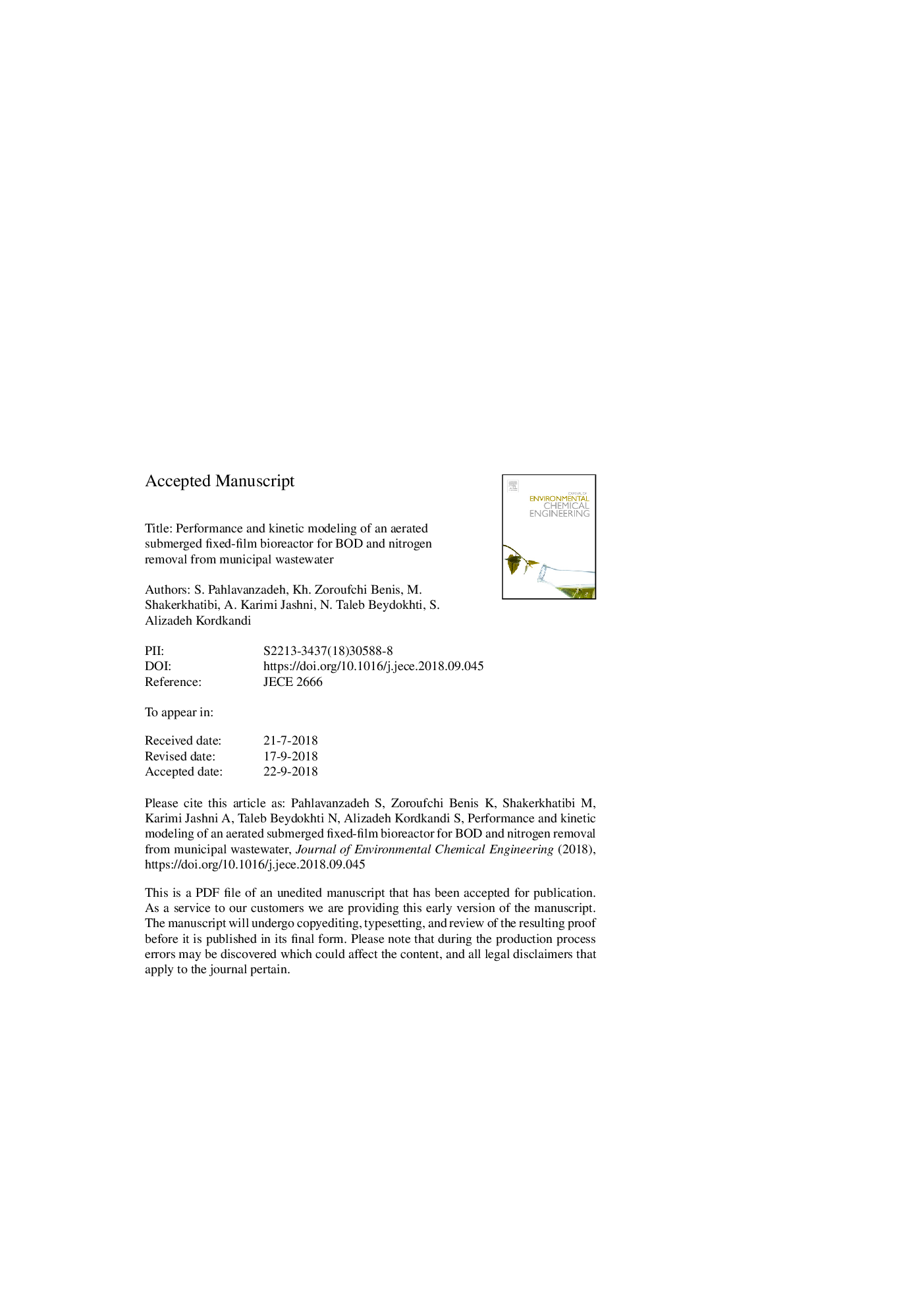| Article ID | Journal | Published Year | Pages | File Type |
|---|---|---|---|---|
| 11028974 | Journal of Environmental Chemical Engineering | 2018 | 31 Pages |
Abstract
The current study investigated the biochemical oxygen demand (BOD) and nitrogen removal from actual municipal wastewater using an up-flow aerated submerged fixed-film (ASFF) bioreactor. The experiments were conducted using a 14.8âL bioreactor with polypropylene packing media. For the first time, three kinetic models (first-order, Grau second-order, and modified Stover-Kincannon) and evolutionary polynomial regression (EPR) were considered in evaluating the substrate removal in an ASSF bioreactors fed with actual municipal wastewater. The applied BOD5 concentrations of actual municipal wastewater varied in the range of 198â±â12 to 213â±â16âmg/L. The system was able to achieve a 90%-98% reduction in BOD5, while the organic loading rates (OLRs) were between 0.59 and 2.06âkg BOD5/m3.d. Disregarding certain experimental conditions, the effluent BOD5 concentrations were not more than 20âmg/L throughout the experiments. When the hydraulic retention time (HRT) was reduced from 8 to 2.5âh, the ammonia removal efficiency dropped from 94.0% to 78.9%. Moreover, a direct relationship was observed between the applied OLR and the ratio of volatile solids to total solids. Conversely, an inverse correlation was seen between the reduction in total suspended solids and the OLR. Although several studies have evaluated the aerobic treatment of different kinds of wastewaters, none of the studies contained a kinetic study relevant to ASFF bioreactors treating an actual municipal wastewater. Among the investigated models, the modified Stover-Kincannon and Grau second-order models were found to be the best to describe the present system and well-fitted with the data sets.
Related Topics
Physical Sciences and Engineering
Chemical Engineering
Chemical Engineering (General)
Authors
Sanaz Pahlavanzadeh, Khaled Zoroufchi Benis, Mohammad Shakerkhatibi, Ayoub Karimi Jashni, Nasser Taleb Beydokhti, Salman Alizadeh Kordkandi,
